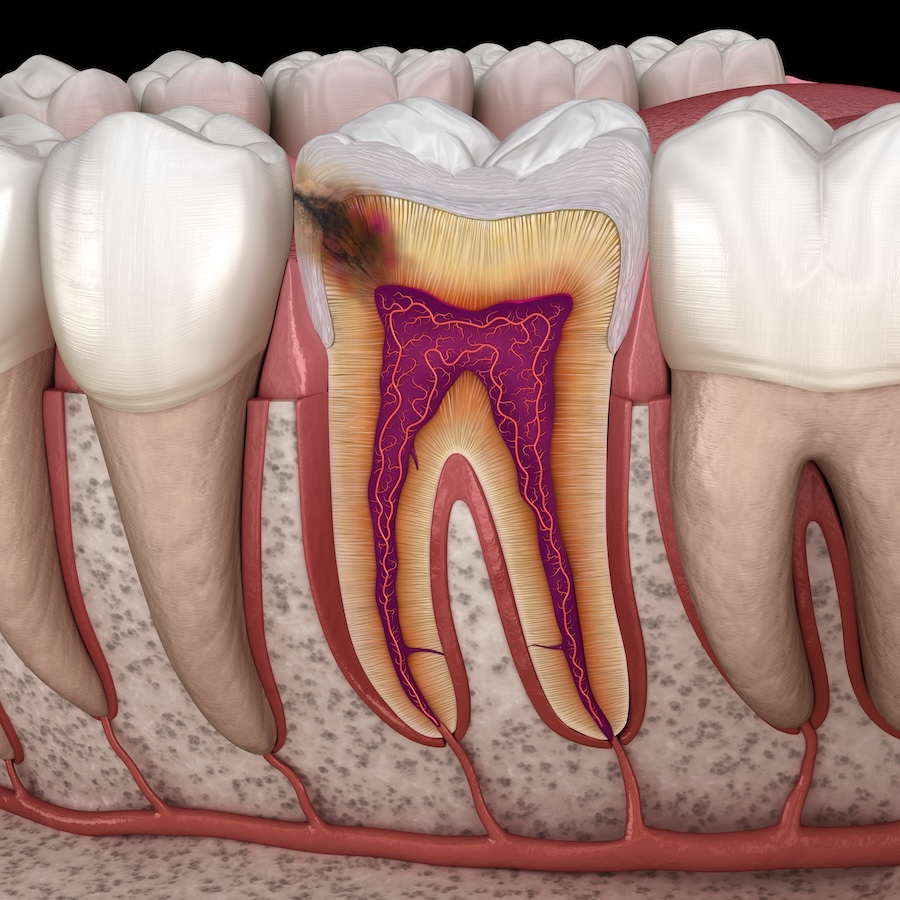
Why Are Some People More Prone to Cavities?
February 14, 2025 9:00 amHave you ever wondered why some people seem to get cavities no matter how often they brush, while others breeze through dental checkups cavity-free? It’s not just about brushing and flossing—though those are definitely important! Let’s take a closer look at why cavities affect some people more than others and what you can do to protect your smile.
What Exactly is a Cavity?
A cavity is a small hole in your tooth caused by tooth decay. This happens when the bacteria in your mouth feed on sugars from the foods you eat, producing acids that wear down your tooth enamel. Over time, this leads to decay and cavities. While good oral hygiene can prevent many cavities, other factors play a role in how likely you are to get them.
1. Genetics: Blame It on Your DNA
Your genes can influence everything from your hair color to your risk for cavities. Some people naturally have weaker enamel, making their teeth more vulnerable to decay. Others may have deeper grooves and pits in their molars, which are harder to clean and more likely to trap food and bacteria. Even the composition of your saliva—how much you produce and how well it neutralizes acids—is influenced by genetics.
2. Diet: Sugar Isn’t the Only Culprit
It’s no surprise that sugary snacks and drinks contribute to cavities, but it’s not just about how much sugar you eat—it’s also how often you eat it. Frequent snacking gives bacteria more fuel to produce acid. Sticky foods, like caramel or dried fruit, cling to teeth longer and increase your risk even more. Acidic foods and drinks, like citrus and soda, can also erode enamel, making it easier for cavities to form.
3. Oral Hygiene Habits: Are You Brushing Correctly?
Even if you brush twice a day, technique matters. Brushing too quickly, missing certain areas, or not flossing can leave plaque behind. If plaque isn’t removed, it hardens into tartar, which can’t be cleaned with regular brushing and makes cavities more likely. Regular dental cleanings help remove tartar and catch any early signs of decay before they become bigger problems.
4. Dry Mouth: Less Saliva, More Cavities
Saliva plays a big role in protecting your teeth. It helps wash away food particles, neutralizes acids, and strengthens enamel with minerals like calcium and phosphate. If you have dry mouth (xerostomia), your teeth are more vulnerable to decay. Dry mouth can be caused by certain medications, medical conditions, or simply not drinking enough water.
5. Age: It’s Not Just a Kid’s Problem
While cavities are often associated with kids, adults are at risk too—sometimes even more so. As we age, gum recession can expose the roots of teeth, which don’t have the same protective enamel as the crown. This makes them more prone to decay. Older adults may also experience dry mouth due to medications, increasing their risk of cavities.
6. Dental Work and Appliances: Hidden Trouble Spots
If you have fillings, crowns, or braces, you might be at a higher risk for cavities. Dental work can create tiny spaces where bacteria can hide, and braces make it harder to clean every nook and cranny. It’s important to pay extra attention to these areas when brushing and flossing.
7. Health Conditions and Medications: More Than Just Your Teeth
Certain health issues, like diabetes, can increase your risk of cavities by affecting your body’s ability to fight infections, including gum disease and tooth decay. Some medications, especially those that cause dry mouth, can also make cavities more likely. If you’re managing a health condition, it’s important to let your dentist know so they can help you take extra precautions.
How to Reduce Your Risk of Cavities
Even if you’re naturally more prone to cavities, there are steps you can take to protect your teeth:
- Brush and Floss Daily: Use fluoride toothpaste and don’t forget to floss to remove plaque between your teeth.
- Watch Your Diet: Limit sugary and acidic foods, and try to rinse your mouth with water after eating.
- Stay Hydrated: Drinking water helps keep your mouth moist and washes away food particles.
- Regular Dental Checkups: Professional cleanings and early detection can prevent small issues from turning into bigger problems.
- Consider Dental Sealants: Sealants protect the grooves in your molars where cavities often form, and they’re not just for kids!
Concerned About Cavities? Visit Alma Dental Care in Petaluma, CA
If you find yourself getting cavities often, it might be time to take a closer look at what’s causing them. At Alma Dental Care in Petaluma, CA, Dr. Serrano will help identify the factors contributing to your tooth decay and create a personalized plan to keep your smile healthy.
Schedule an appointment today, and let us help you protect your teeth for years to come!
Contact UsCategorised in: Dental Tips, Preventive Dental Care, Restorative Dentistry

